|
Genres, Themes, Actors, and Directors:
- Biopic
- Fay Wray Films
- Historical Drama
- Journalists
- Revolutionaries
- Wallace Beery Films
Review:
This highly fanciful Pre-Code rendering of the legend of Pancho Villa (scripted by Ben Hecht) was nominated for an Academy Award as one of the Best Pictures of the Year, and was hugely popular at the box office. Unfortunately, it comes across today as a mostly offensive effort, primarily given the casting of buffoonish Beery in the lead role, not to mention no Latinos in the cast at all (a norm for the time, but still noticeable).
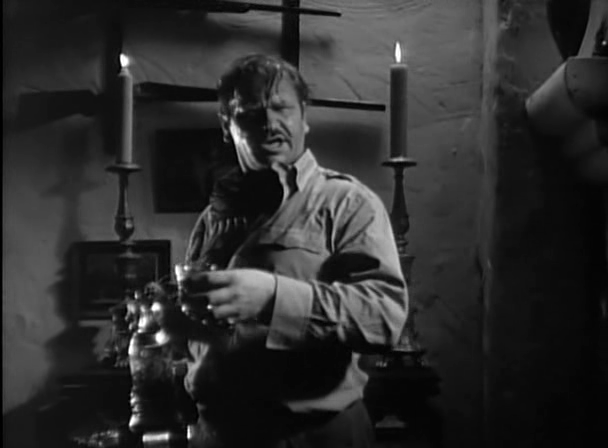
The film seems designed to portray Villa in a legendary if authentically problematic light, given the role played by Stuart Erwin as an American reporter eager for scoops:
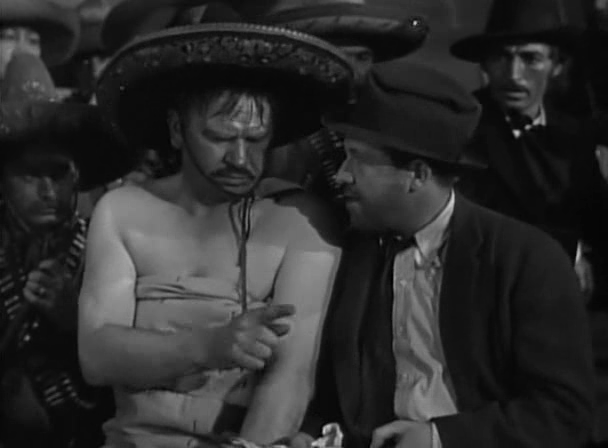
… yet justice simply isn’t done to the complexity of this folk hero’s legacy. Ultimately, the movie’s extremely challenging production history — including Howard Hawks bowing out as its initial director — is more interesting than the finished product; according to TCM’s article:
During the location shoot [in Mexico], real soldiers and peasants were used as extras, and some of them were quite a bit wilder than MGM expected. … Shootings often took place near the set, and one man inexplicably turned a pistol on himself after speeding by and crashing his car through a fence. MGM’s crew was housed in old railroad cars, and they were regularly served nearly inedible food. … [The] film became the subject of angry debate among Mexican citizens and government leaders who were leery of romanticizing Villa.
Meanwhile, Lee Tracy — originally cast in the role played by Erwin — made an absolute mess of things, and was fired. As described in TCM’s article:
Lee Tracy was known as one of the more enthusiastic drinkers in the film industry; his name was often mentioned in the same breath as such famous imbibers as John Barrymore and W.C. Fields. Tracy’s fast-talking persona was perfect for the character Johnny Sykes, and he filmed several key scenes with Hawks behind the camera. One Sunday, during a national holiday, the cast and crew were celebrating in the streets with the locals…except for Tracy, who was standing buck-naked on a balcony, shouting obscenities at the crowd. Eventually, he urinated on a group of Mexican military cadets and had to be rushed out of the country lest he be strung up for his anti-social behavior.
Tracy’s firing from the film led to a spat and break up between Hawks and David O. Selznick, with the eventual cost of this movie ballooning to over a million dollars. Watch for Fay Wray as one of many women Zapata is interested in and “wants to marry” (i.e., have sex with), though she’s having none of that:
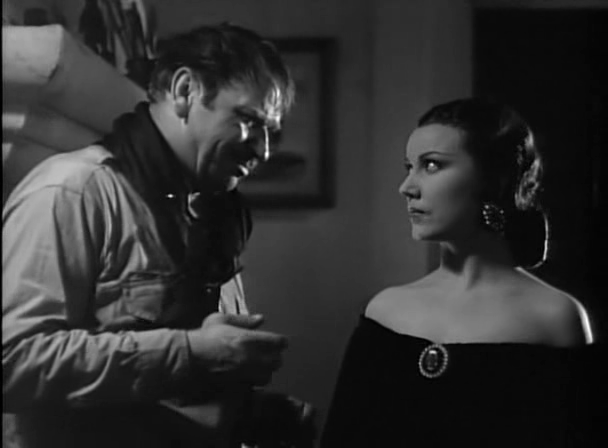
Notable Performances, Qualities, and Moments:
- Atmospheric cinematography
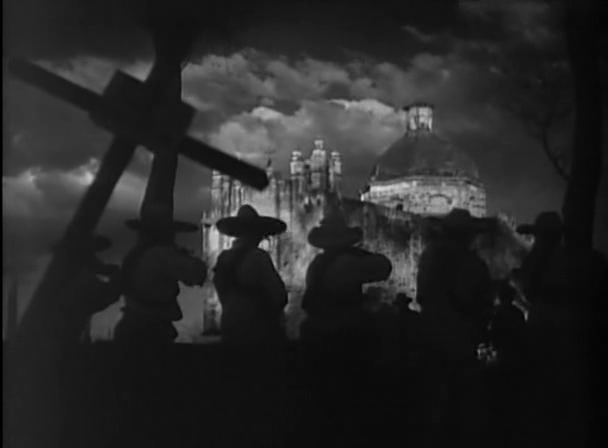
Must See?
No; you can skip this one unless you’re a Wallace Beery fan.
Links:
|
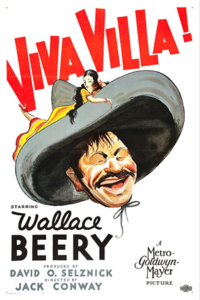




One thought on “Viva Villa! (1934)”
Rewatch (10/17/21). Not must-see.
I was curious about the facts re: Villa and this film about him – and I found this:
http://historyonfilm.com/viva-villa/
As the film begins, we’re told outright that it is fiction (which is refreshing to know) and that the film follows more of the ‘legend’ of the man. But is this film actually even the legend? If you go into the film with the knowledge provided in the link above, you’re likely to enjoy the film a whole lot less – whether it claims to be fiction or not.
However – if you can *totally forget* that it’s even about Villa at all (which is asking a whole lot) then the film can probably be enjoyed as total fiction.
As such, Beery then becomes fun to watch (as usual). The plot makes its own heroic sense in its separate reality and it holds interest for the fiction that it is.
Schildkraut is particularly effective as Villa’s nemesis and James Wong Howe provides his usual effective cinematography.
Purists of Mexican history would probably hate this movie for its countless liberties – even if certain things in it are true. Personally I just decided to focus on Beery, forgot about *anything* that had to do with reality – and therefore enjoyed the film for what it is.